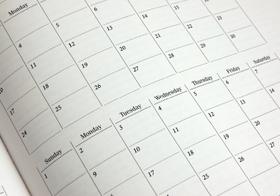Here is a guide for teachers and administrators seeking employment in private schools. Think of it as a roadmap for the job search process. I wrote this for teachers, as well as admissions and business office professionals and those seeking positions as dean of students and head of school. I have drawn most of the advice from my own experience in the field. Some of it is plain, old-fashioned common sense. I have also included some tips and strategies for dealing with today's job markets. You will find plenty of practical advice about applying, networking, using job boards, and much more. I know that your goal is to get that all-important first interview. So, with that in mind, let's get started.
Apply correctly.
You must follow each individual school's specific application instructions to the letter. If you don't follow their instructions, the staff member charged with screening applications will probably not file your application in the "To Be Interviewed" folder. Your application will end up in a folder with all the other applications which don't appear to meet their requirements at first glance. Back in the days before email and Monster.com, I had to open the mail from teachers looking for employment with the Anglican Education Association in The Bahamas. I could tell at a glance whether we would interview the applicant. Cover letters hand-written on a page torn from an exercise book never made the cut.
This video offers tips for completing employment applications.
Be aware that available positions typically receive dozens, sometimes hundreds of applications. Getting through that initial screening successfully is your first challenge.
Make your application easy to read.
When you are completing applications online, your answers will be formatted exactly as the school wants. Focus on those boxes on the application where they ask for a free-form response to a question or a reaction to a statement. Determine how many words you are allowed to enter. Then write a rough draft using Notepad or another simple text editor. Tweak that rough draft carefully. When it is as perfect as you can make it, then enter it into the free-form box on the application. Do not try to compose your free-form answer on the fly online. The secret here is to write a few lines which will make the person who is reading your application think "We must interview this applicant." Let that desired result drive your writing and presentation.
Match your qualifications to the job requirements.
Most schools specify the qualifications which they are seeking for their open positions. Make sure that you offer everything which the school is looking for. That is the minimum requirement. When your qualifications meet the minimum requirements, list additional relevant qualifications. For example, if the school is looking for a Master's degree in French and you have a Master's degree in French and Spanish, that additional qualification will be a plus. The same would apply if you were working on your doctoral degree. Once again, remember that other applicants will also present themselves as qualified. You must stand out from the crowd in order to be interviewed.
This TED talk explains why some resumes get ignored.
Submit an accurate and truthful application
You and I have read and seen those stories about professionals who have falsified their credentials. Never lie on a job application. Don't dissemble. Don't imply. If you attended a conference at Harvard University, you could not state that you graduated from Harvard. While the school may not notice falsehoods immediately, at some point it will verify your credentials. Make sure everything is in order.
Create value in your resume.
Sometimes it is difficult for you and me to be objective when we write our own resumes. That's why it is so important to have a trusted friend or family member review your resume critically. That extra set of eyes will spot typos and grammatical errors. But more importantly, they will notice when you downplay a skillset or other significant feature of your credentials.
Andrew LaCivita explains how to create a winning resume in this short video.
One way to create value in your resume is to keep your skills current. For example, the first operating system I ever used was DOS 2.0. At the moment I am fluent in Windows 10. Just sticking with DOS 2.0 would diminish the value of my resume. With that in mind, review your skills, especially your teaching skills. Your prospective employers will examine those skills very closely.
Write a perfect cover letter.
Over the years I have read hundreds of cover letters. I have always been astonished to see poorly written cover letters replete with typos. Think of your cover letter as the front door to you and your accomplishments. You need to make certain that you make the best possible impression. Avoid the common mistakes which I detail in 5 Common Employment Application Mistakes.
While we are discussing employment application mistakes, read 5 Things Never to Put in Your Job Application. This article advises you to stick to the point. The school is looking for applicants who offer specific qualifications. Don't confuse things by mentioning accomplishments in your past which are not relevant to the position for which you are applying.
Questions? Contact us on Facebook. @privateschoolreview






















